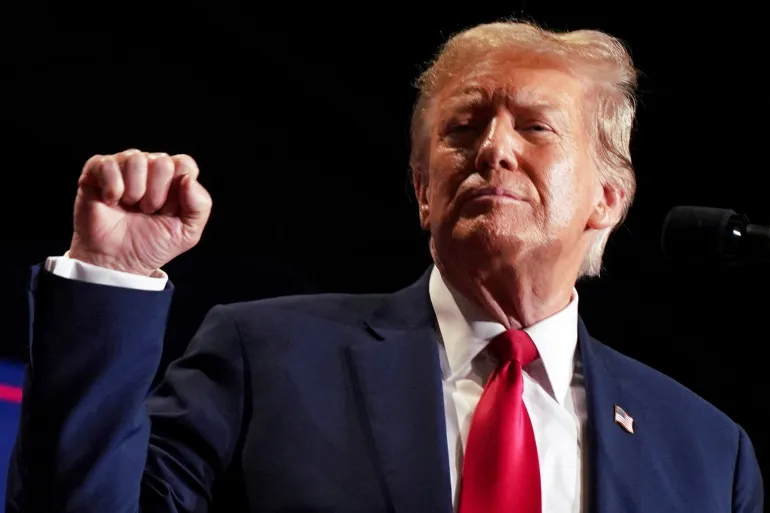
Donald Trump’s name was allowed to remain on the state’s Republican primary ballot as the United States Supreme Court made a unanimous decision to reject Colorado’s attempt to remove it. Donald Trump’s news decision overturned a ruling by Colorado’s highest court, which was based on the 14th Amendment’s insurrection clause. This clause suggested that Trump was involved in the Capitol riot on January 6, 2021. As a result of the Supreme Court’s decision, Trump can remain a candidate for the Republican nomination in Colorado, strengthening his position as a top contender for the 2024 presidential race.
Legal Basis and What It Means
The Supreme Court explained in its opinion that only Congress has the power to enforce Section 3 of the 14th Amendment concerning federal officeholders and candidates. This decision also sets a precedent stating that states cannot disqualify candidates for federal offices based on the insurrection clause. This ruling has significant implications for how constitutional provisions are interpreted and applied in election laws.
Reactions and Thoughts of Donald Trump
Trump celebrated the ruling, calling it a victory for fair competition in elections. However, some critics, such as Colorado Secretary of State Jena Griswold and the watchdog group Citizens for Responsibility and Ethics in Washington (CREW), expressed disappointment. They believe Trump’s actions during the Capitol riot should have disqualified him. Legal experts have varied opinions, with some expressing concerns about how this ruling might affect future elections and the role of Congress in such matters.
What This Means for the Election
With the Supreme Court’s decision, Trump can continue to participate in the Colorado primary and the broader Republican nomination process. As Super Tuesday approaches, where voters in Colorado and other states will cast their votes, Donald Trump remains a leading candidate. Beyond this election cycle, this ruling has implications for how candidate eligibility and constitutional interpretation are handled in the United States.
In summary, the Supreme Court’s decision regarding Trump’s presence on the Colorado ballot underscores that Colorado cannot ban Trump from participating in the ongoing presidential race. It clarifies the legal framework surrounding candidate eligibility and sets a precedent for future election-related legal disputes.
Frequently asked question
1. Q: Why did Colorado try to remove Donald Trump from the ballot?
A: Colorado attempted to remove Donald Trump from the ballot due to allegations of his involvement in the Capitol riot on January 6, 2021. This led to a legal challenge based on the 14th Amendment’s insurrection clause.
2. Q: What is the significance of the Supreme Court’s ruling?
A: The Supreme Court’s ruling clarifies that only Congress has the authority to enforce Section 3 of the 14th Amendment concerning federal officeholders and candidates. It also sets a precedent that states cannot disqualify candidates for federal offices based on the insurrection clause.
3. Q: How does this ruling impact Trump’s candidacy?
A: The ruling allows Trump to remain a candidate for the Republican nomination in Colorado, solidifying his position as a frontrunner for the 2024 presidential race.
4. Q: What were the reactions to the Supreme Court’s decision?
A: Trump celebrated the ruling as a victory for fair competition in elections, while some critics expressed disappointment, believing Trump’s actions during the Capitol riot should have disqualified him.
5. Q: What are the broader implications of this ruling?
A: Beyond this election cycle, the ruling has implications for how candidate eligibility and constitutional interpretation are handled in the United States. It sets a precedent for future election-related legal disputes.
6. Q: How does this ruling affect future elections?
A: This ruling clarifies the legal framework surrounding candidate eligibility and may influence how similar legal challenges are addressed in future elections.